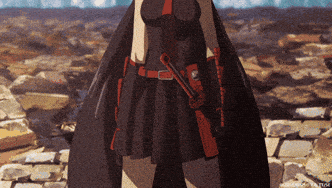- VerseTaku
- Posts
- Jay Rock's 90059 and Akame ga Kill!: Streets of Struggle
Jay Rock's 90059 and Akame ga Kill!: Streets of Struggle
Jay Rock's album 90059 stands as a sonorous journey through the very heart of Watts, Los Angeles; it's a raw and uncut narrative of struggle, survival, and hope on the streets. Parallel to this is Akame ga Kill!, a gripping anime and manga series that chronicles the tale of assassins who rise against corruption and tyranny. Both are tales of prevailing in the face of adversity, and both are loaded with intense emotion and stark realism.

Common Themes: Mirrors Reflecting the Soul
Identity and Society
90059 and Akame ga Kill! revisit the central theme of identity within society. Both wrestle with the contradictions of an individual's role in a fractured system—the desires to belong, to rise above, and to effect change.
"I'm sick of this struggling... I wanna have stuff"
– Jay Rock, "The Ways"
This line resonates with Akame ga Kill's fighters, rebels against an unjust empire, questioning what they must sacrifice to forge a fair society.
Love and Conflict
Heartache and loyalty are themes that pulse in Jay Rock's verses, aligning closely with the complex relationships and bonds formed in Akame ga Kill! Character motivations are driven by love—be it platonic, romantic, or familial. Akame's comrades often blur the lines between ally and enemy, battling internal and external conflicts just as Jay Rock navigates rivalries and alliances on the streets.
Growth and Transformation
Both the album and the series delineate growth, survival, and the scars that mark their transformation. Jay Rock's maturity as an artist echoes the narrative arcs in Akame ga Kill!, where characters are forced to mature swiftly in their merciless world.
Artistic Expression: Lyrics and Visual Storytelling
Music and visual art coalesce, telling gritty stories that feel both personal and universal. The boom-bap of Jay Rock's "Gumbo" feels like the beats in the heart of the anime—unexpected, layered, and deeply textured.
"Tell me where you from, tell me which building you stay?"
– Jay Rock, "Hood Gone Love It"
This inquiry feels akin to the anime's backdrop of a dystopian society, each location richly drawn, almost a character in itself, paralleling the vivid verses that transport the listener to Jay Rock's streets.
Emotional Impact: Echoes in Hearts and Minds
The raw honesty of 90059 draws listeners into an emotional labyrinth, much like the narrative twists of Akame ga Kill! Fans often debate the impact of Jay Rock's messages discussing socioeconomic struggles, just as anime communities dissect the moral quandaries faced by their beloved characters.
Incorporating the Voices: Quotes and Lyrics
Jay Rock's lyrics often reflect the harsh truths of street life:
"90059, be the zip if fine, he gon' slip in due time"
– Jay Rock, "90059"
This can be juxtaposed with the resolute voice of Akame ga Kill!'s protagonist, Tatsumi, who faces his reality with the same raw determination:
"I will change the empire from within!"
The strife in the streets of Rock's LA finds its echo in the rebels' fight, an anthem capturing the spirit of resistance in both realms.
Reflections: Two Sides of the Same Coin
Fans of Jay Rock's 90059 and followers of Akame ga Kill! stand to gain a deeper understanding of how struggle shapes us. This comparison underscores our innate drive for change, and the inevitable growth that comes from the ashes of conflict. It reveals that art, whether through music or manga, can be a mirror to the reality we all live and breathe, and the strength we find within it is universal.